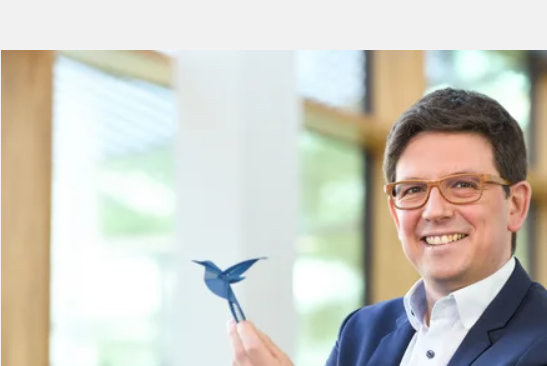3D Printed YOU MAWO eyewear frame 3 times more sustainable with EOS technology
EOS, a leading supplier for responsible manufacturing solutions via industrial 3D printing technology, is deeply committed to sustainability. EOS, the technology provider, together with its customer YOU MAWO, and Fraunhofer EMI, conducted a systemic Life Cycle Analysis (LCA) for YOU MAWO eyewear over the entire life cycle of its 3D printed glasses. From cradle-to-grave, excluding the use phase, this study compares the environmental impact of additively and conventionally manufactured eyewear, covering the life cycle from material sourcing to production to packaging and shipping. The study also included a hotspot analysis to identify major contributors and potential for improvement, including powder refresh rates, powder feedstock, and energy sources used.
High-quality eyewear matters to many of us
Half of the people in the world depend on glasses. At the same time, eyewear is a very personal and emotional topic and over the years has developed into a fashion statement too. It is a daily, if not a life-long companion for many. It is exposed to UV light and residue from cosmetics and is subject to constant high mechanical stress. For the wearer of glasses, the high quality of both the frame and the glasses is essential when it comes to wearing comfort and stability. So why compromise and accept standard glasses that pinch and constantly slip and are often not stable enough for daily wear? And why accept extensive supply chains and overproduction?
Additively manufactured eyewear with a lower carbon footprint
The study concluded that 3D printed eyewear performs significantly better than conventional eyewear in all 18 impact categories, such as climate change, human toxicity, ozone depletion, and water depletion. As an example, the carbon footprint of a customized, 3D printed YOU MAWO eyewear product is around 58 percent lower compared to conventionally manufactured eyewear. The analysis also concluded that 3D printed eyewear compared to conventionally manufactured Acetate eyewear, creates 80 percent less waste and can help to avoid lengthy post-processing. All YOU MAWO locations are powered by renewable energies. The study reveals more potential for improvements, such as a further reduction in the powder refresh rate, the further development of powders with a lower footprint (e.g., bio-based), and less expensive packaging.
100 percent made in Germany
Altogether, the 3D printing-based eyewear frame production offered by YOU MAWO, based on EOS technology produces three times less CO2 emissions than a traditionally produced pair of glasses. Since 2021, the company has set up its own production and assembly in Germany. All production equipment, the basic materials, and all consumables in the finishing and dyeing process come from Germany.

Source: YOU MAWO

Source: EOS
Björn Hannappel, Head of Sustainability at EOS, is enthusiastic about the outcome: “We are shaping the future of responsible manufacturing. Our goal and purpose are to combine pioneering digital innovation in industrial 3D printing and sustainable practices. The LCA we just conducted supports this approach. And it proves that EOS is currently offering the most innovative method on the market to produce mass customized eyewear.” He goes on to say: “We are proud to partner with YOU MAWO in their passionate journey to offer each person individually optimized and sustainable eyewear.”
Sebastian Zenetti, Managing Director and Head of Sales at YOU MAWO, adds: „Together with EOS, we are creating the future of custom-made, 3D printed eyewear. The EOS technology convinced us as it meets our high-quality, low scrap rate criteria. It supports our strive for sustainable production and products.” And he continues: “As the technology enables the design and manufacturing of highly individualized eyewear, it also helps us to avoid overproduction, minimize supply chains and enable on demand production.”

Source: YOU MAVO

Source: Fraunhofer EMI
Sebastian Kilchert, the Research Associate at Fraunhofer EMI, concludes: “We are happy to have added our expertise in conducting LCAs for this project, as such enabling a scientifically based study. It was essential to focus the study on a particular application – in this case, eyewear. The results have been quite surprising, in a positive way. We expected a similar environmental impact compared to the investigated conventional manufacturing scenario but learned that additive manufacturing performed much better and had roughly only one-third of the environmental impact.”
Conclusion
To conclude the LCA helped EOS to gain more transparency in terms of the carbon footprint of this specific application. It aimed at generating data to better understand the key impact factors for a sustainable, 3D printing-based production and to improve the latter with regards to CO2 emissions. This enables EOS to constantly optimize the technology, processes, and materials for the better of the product, as such supporting customers in their journey towards responsible manufacturing.
This content was originally published on the EOS website.

